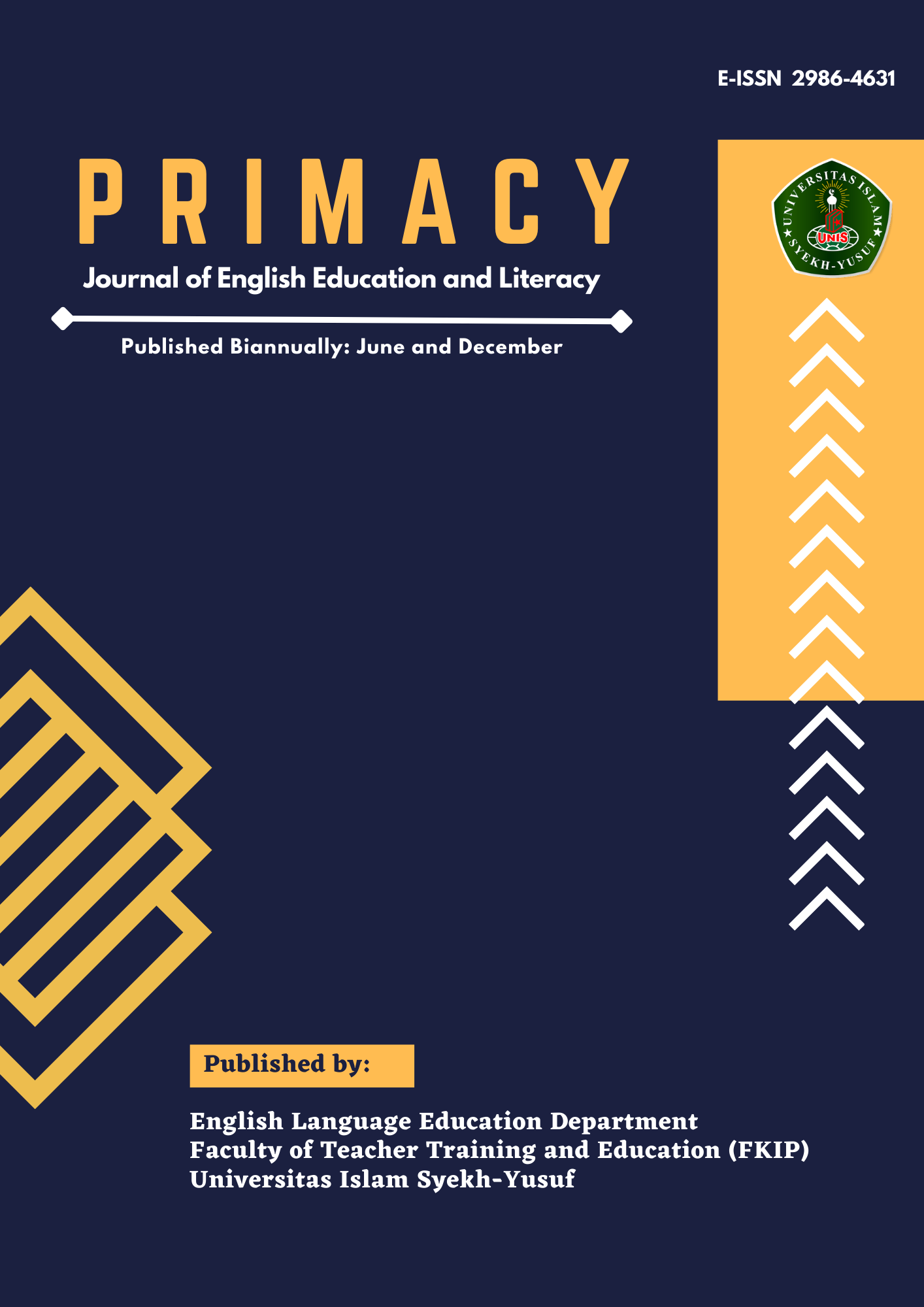DRAMA AS A REINFORCEMENT IN YOUNG LEARNERS' ENGLISH VOCABULARY LEARNING
DOI:
https://doi.org/10.33592/primacy.v1i2.3203Keywords:
Drama, Vocabulary Learning, Young LearnersAbstract
This study seeks to ascertain whether drama has a significant impact on vocabulary instruction for young learners by looking into the teacher’s teaching practice. One English instructor who frequently teaches English through drama was involved in data gathering for this study since the teacher is successful at doing so. Semi-structured interviews are the approach utilized to collect data, and Braun and Clarke's thematic analysis is then used to interpret the data (2012). Three emerging themes from this study's findings indicate the advantages of using drama to teach English: enhancing students' confidence, expanding students' vocabulary, and increasing students' interest in acquiring English language. However, based on the study's findings, the researcher concluded that young learners may benefit from drama-based vocabulary instruction for the following reasons: The use of drama in the classroom fosters intellectual and emotional conditions that promote students' ability to think. It encourages students to take chances and enables them to put their communication talents to use. Dramatic instruction increases language retention over the long run because vocabulary learning requires active participation from the learners.












